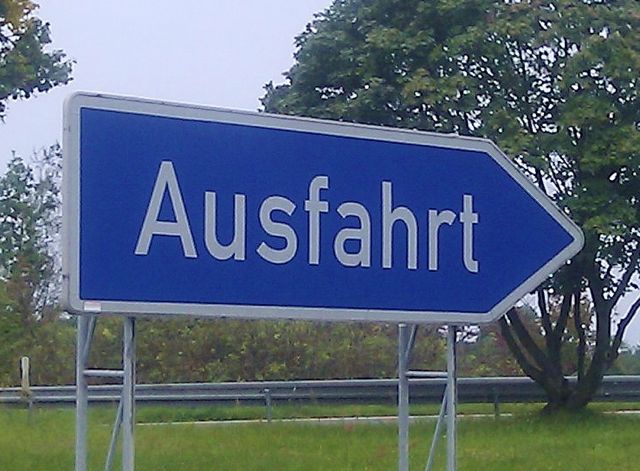Blog - How To Learn German
German is very important language. Obviously you are interested in learning German or you wouldn’t be looking at this web page, but here are some great reasons for learning German. Of course not all these reasons my apply to you, but remember the best reason for learning a language is . . .
Read More . . .
The English sentence “I’d like some tea” can be translated into German in three different ways: 1. Ich möchte etwas Tee. (I want something tea – I want some tea, please.) 2. Ich würde gern etwas Tee haben. (I would like something tea have – I would like some tea, . . .
Read More . . .
If you’ve ever been on a German Autobahn, you’ve seen this sign: To English speakers it is a funny word that sounds a lot like the English word fart. Now…what exactly does the German word “Ausfahrt” have to do with the English meaning of “fart”? To be exact … nothing. . . .
Read More . . .
Do you realize that whenever you say “a,“ “o,“ “u,” and “i,“ you actually make two sounds, not just one? Say “a” out loud; you just said “aa-eeh.” Try the same with “o” (“aw-ooh”) or “u” (“y-ooh”). English vowels are diphthongs. In German, however, vowels do not consist of diphthongs; . . .
Read More . . .
Most of the consonants in the German alphabet are very much like their English counterparts. A few, though, have striking differences. Others have only very subtle differences, and these are the ones you will want to pay the closest attention to, since the proper pronunciation of these consonants will determine . . .
Read More . . .
Articles – ever paid much attention to them? These are those short little words like a, an, and the. If you are a native speaker of English and if you have never tried to learn a language like Spanish, French, or German, you probably haven’t. If you want to learn . . .
Read More . . .

 Login
Login